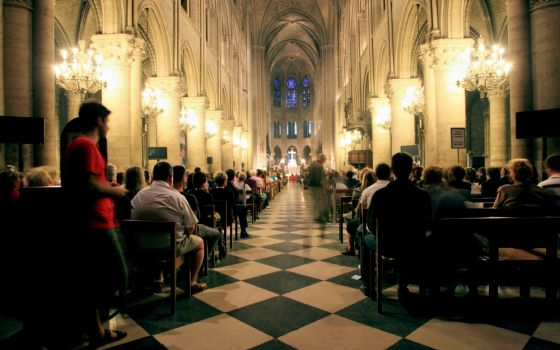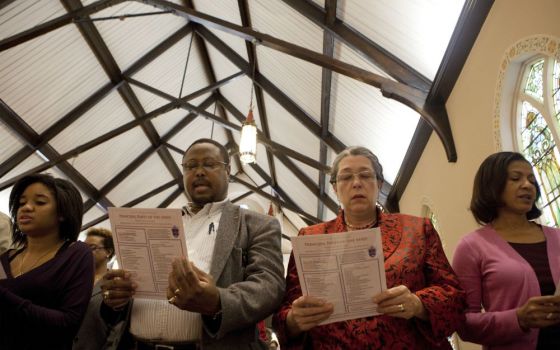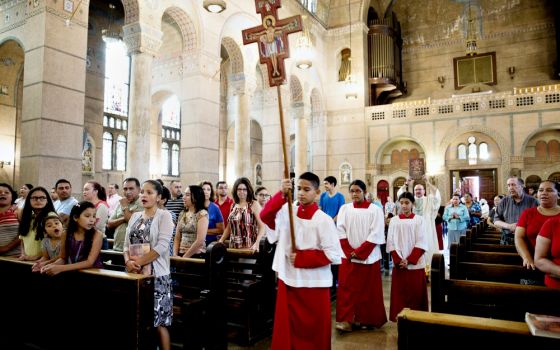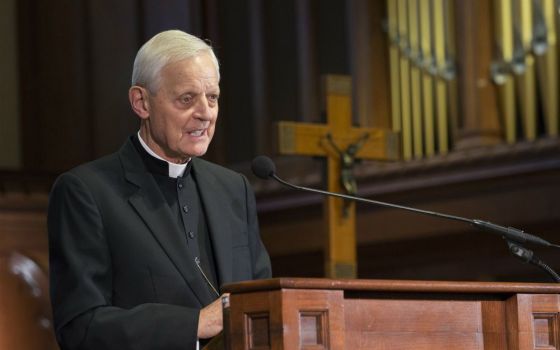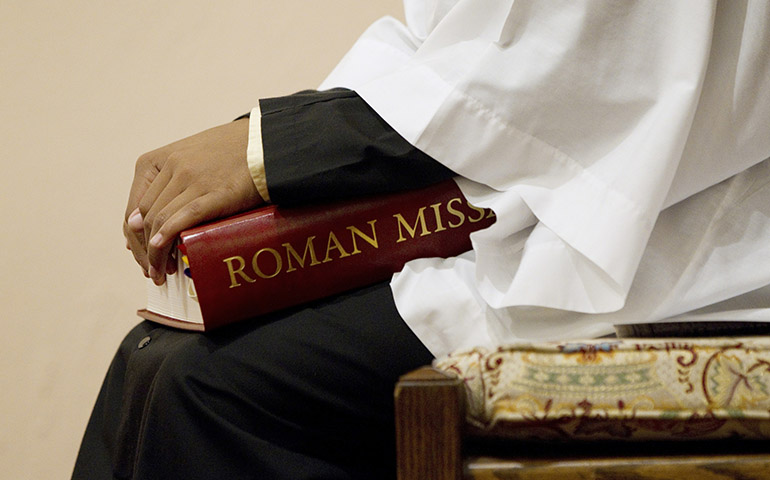
An altar server holds a copy of a Roman Missal during Mass at St. Joseph Catholic Church in Alexandria, Va., in this 2011 file photo. (CNS/Nancy Phelan Wiechec)
Pope Francis has decentralized authority over how the texts used in the Catholic Church's liturgies are translated from Latin into local languages, moving most responsibility for the matter from the Vatican to national bishops' conferences.
In a document issued motu proprio (on his own initiative) Sept. 9, the pontiff says he is making a change to the church's Code of Canon Law so that the Second Vatican Council's call to make the liturgy more understandable to people is "more clearly reaffirmed and put into practice."
The document, given the title Magnum Principium, modifies two clauses of Canon 838. The rewritten clauses say simply that the Vatican is to "recognize" adaptations of Latin liturgical texts approved by national bishops' conferences.
A comparison of the Italian text of the prior and new versions of the canon makes the change clear. Where the Italian says the Vatican was tasked before with "authorizing" all liturgical translations, it is now asked simply to "review" translations made by the bishops' conferences.
That review will partly come through a process of confirming that the translations appropriately reflect the intent of the original Latin, known as a confirmatio.
The Vatican's Congregation for Divine Worship and the Discipline of the Sacraments said in a note accompanying the release of the motu proprio that the confirmatio process "leaves responsibility for the translation, presumed to be faithful, to the pastoral and doctrinal munus of the bishops' conference."
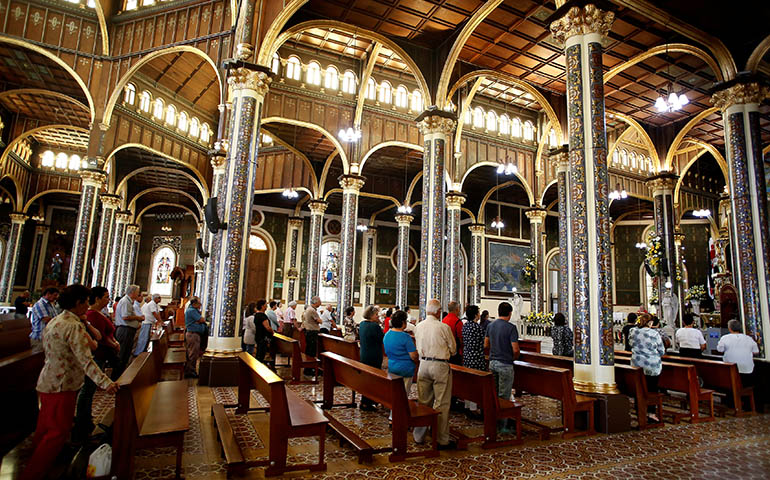
Worshippers attend Mass Aug. 24 at the Basilica of Our Lady of the Angels in Cartago, Costa Rica. (CNS/Juan Carlos Ulate, Reuters)
The congregation adds that the confirmatio "presupposes a positive evaluation of the faithfulness and congruence of the produced texts with respect to the Latin text."
The process of crafting translations of Latin texts into local languages has been one of the most controversial and acrimonious in the Catholic church since the end of the Council, held from 1962-65.
Debate has centered over whether such translations should take a word-to-word literal approach in conveying the meaning of the Latin texts, or focus on adapting those texts to read more fluently in modern languages.
A 2001 instruction from the Vatican's worship congregation, Liturgiam authenticam, specified that translations from Latin were to be made "in the most exact manner, without omissions or additions in terms of their content."
The instruction was a major reversal of the worship congregation’s original postconciliar translation rules, spelled out in 1969 in its document Comme le Prevoit, which encouraged translators to adapt the original Latin to contemporary linguistic and cultural conditions in their countries.
To put in place the new approach to translations in the English-speaking world, the Vatican congregation established a new committee in 2001, known as Vox Clara, to evaluate specifically English-language liturgical translations. The committee assumed much of the authority that had been given to the International Commission on English in the Liturgy, which had followed the rules as put forth in Comme le Prevoit.
Using the norms put forth in Liturgiam authenticam, the U.S. church adopted a new English translation of the Roman Missal in late 2011. That translation has faced criticism from those who find its use of English archaic and far from poetic.
Francis acknowledges the acrimony that has surrounded liturgical translations in his Sept. 9 motu proprio, saying "it is no surprise that difficulties have arisen between the Episcopal Conferences and the Apostolic See."
"In order that the decisions of the Council about the use of vernacular languages in the liturgy can also be of value in the future a vigilant and creative collaboration full of reciprocal trust between the Episcopal Conferences and ... the Congregation for Divine Worship and the Discipline of the Sacraments, is absolutely necessary," he continues.
The changes to the Code of Canon Law were approved by Francis Sept. 3 and will go into effect on Oct. 1.
The Vatican released notice of the changes as the pope is on a four-city visit to Colombia.
When the news was first announced, Francis was preparing to travel to Medellin, the site of a landmark 1968 meeting of the regional Latin American Episcopal Conference that stressed the role regional and national bishops' conferences play in the life of church.
[Joshua J. McElwee is NCR Vatican correspondent. His email address is jmcelwee@ncronline.org. Follow him on Twitter: @joshjmac.]




